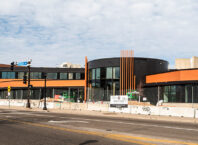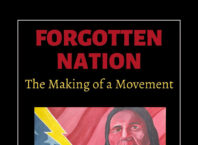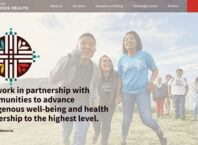“We’ve
got to act like this is a crisis because it is,” Mayor R.T. Rybak
said of the achievement gap, at the beginning of a roundtable
discussion about Indian education at the Minneapolis American Indian
Center on Aug. 26.
The
auditorium at the Minneapolis American Indian Center was full of
educators, parents and community members representing such
organizations as Division of Indian Work (DIW) and others, who all
came with concerns, questions and opinions on ways schools can help
more Native American children succeed.
MIGIZI
Communications, Phillips Indian Educators (PIE) and the Native
American Community Development Institute (NACDI) hosted this
roundtable dialogue with the Mayor to generate ideas to work towards
ending the achievement for American Indian students.
Rybak
said he wanted, “an honest dialogue with a lot of people I’ve been
working with, and some new people, from their perspective on what
more we need to do to make sure every single kid is successful.”
This
conversation came about after Minneapolis Superintendent Bernadeia
Johnson announced her plan to reshape education for Minneapolis
children so that every child who walks into one of the city’s
schools walks out prepared to succeed in either college or a career.
This
hour-long exchange with the mayor was long overdue as Gary Lucier,
Program Facilitator for the Minneapolis Public Schools Indian
Education Department said afterwards, “I think there has to be real
connection with community and they have to open their doors to our
perspective … it took him twelve years to figure it out.”
Parent
Lynette Vizenor said, “They need to start listening to our needs
not telling us what we need and that’s why we are having the
problems we were having today”
At
the beginning of the discussion, the Rybak explained his core beliefs
to change the current educational system, which include more time in
school for kids (increasing both days and hours), finding more
minority teachers and specifically, Native American teachers and
greater freedom for school leaders to select qualified teachers. With
these ideas laid forth, the community was able to directly provide
their perspective on this agenda.
A
major subject was volunteerism and how to allow for more
opportunities for Native American volunteers to be involved in
schools, which in turn, sparked the discussion of partnerships
between the community and schools to provide and increase those
volunteers. An idea that the mayor recognized as fundamental in a
Native American’s child’s success; “because, frankly, having
Indian volunteers work with Indian kids is a lot more powerful,” he
said. Additionally, a participant suggested that there be
opportunities for elders to be in schools to teach language and
cultural traditions.
“The
school system has to quit looking at it like they can fix it by
themselves, it takes a community for our kids and these organizations
on the outside of the school system are here and they’re saying,
‘hey we wanna be apart of this’… we watch over each other, we
come together,” Vizenor said.
Vizenor left with lingering doubts, “It was just informed to me
that the superintendent is working on this shift packet and … from
what I understand she’s writing this up with no Native perspective
or input. I have no hope in that.”
However,
Lucier remains optimistic, “This discussion doesn’t stop here …
I think our community has some outspoken people who can see that we
need to work from our perspective, give some uplift to volunteerism,
give some restructure, provide our community input – the American
Indian perspective – to the needs of education.”
This
dialogue was a part of a larger discussion that Rybak is conducting
with all communities in Minneapolis about the achievement gap. “As
someone whose worked with the community for 12 years I want to make
sure we don’t settle for the status quo. Its good but not good
enough,” he said.
It
is the beginning of a hopeful and much needed change for the
community, “We need to hold these people accountable, we need to
hold the state accountable, we need to hold the government
accountable, everything that we suffer from today was directly put
upon us by the system, this education system, they need to fund
programs to help our people come back,” Vizenor said.






